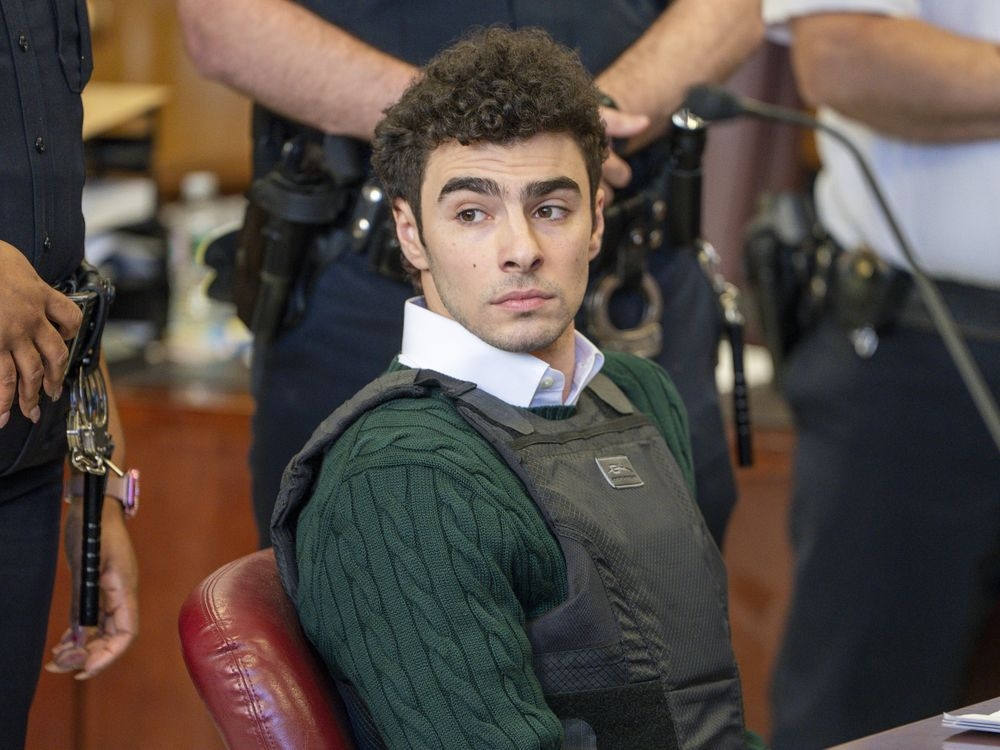Luigi Mangione, a 26-year-old Maryland resident, faces federal and state murder charges following the fatal shooting of UnitedHealthcare CEO Brian Thompson outside the New York Hilton Midtown on December 4, 2024. The incident, captured on surveillance and involving a 9mm “ghost gun,” has drawn widespread attention due to the victim’s prominence and Mangione’s alleged anti-corporate motive linked to the health insurance industry. Mangione’s defense is challenging the state prosecution on constitutional grounds, including claims of double jeopardy and violations of due process, while prosecutors argue the evidence justifies the murder and terrorism charges. The case underscores ongoing national debates surrounding healthcare, corporate influence, and the justice system’s handling of complex criminal cases.
Luigi Mangione’s arrest and charges come after a high-profile investigation into the December 4 shooting of Brian Thompson, the CEO of UnitedHealthcare. The attack occurred in a busy area outside the New York Hilton Midtown, drawing the immediate attention of law enforcement agencies including the FBI and New York Police Department. Surveillance footage played a pivotal role in identifying Mangione as the suspect, showing him brandishing and firing a 9mm firearm, later confirmed to be a “ghost gun,” a type of untraceable homemade weapon without a serial number.
Prosecutors have charged Mangione with first-degree murder as well as terrorism-related offenses, citing evidence that suggests a political motive linked to his alleged opposition to the health insurance industry. Investigators point to statements made by Mangione that reflect anti-corporate sentiments, which they argue underpin the motivation for the killing. These charges highlight both the violent nature of the crime and the broader implications related to ideological extremism and domestic terrorism.
Defense Challenges Prosecutorial Actions
The legal strategy employed by Mangione’s defense team focuses heavily on constitutional objections. They argue that the state’s decision to proceed with murder charges after federal indictment amounts to double jeopardy, violating his Fifth Amendment protections against being tried twice for the same offense. Additionally, the defense contends that Mangione’s due process rights have been infringed upon, criticizing procedural aspects and the coordination between federal and state authorities.
Defense attorneys have filed motions seeking to dismiss the state charges, asserting that the overlapping prosecutions unfairly jeopardize their client’s right to a fair trial. They also question the admissibility of certain evidence, including statements and pieces of forensic material obtained during the investigation. These arguments are set to be a central focus in upcoming pretrial hearings.
Prosecutors Defend Evidence and Charges
In response, prosecutors maintain that the charges are supported by substantial evidence and are appropriate under both state and federal law. They emphasize the gravity of the crime and the need for comprehensive legal accountability given the public safety concerns related to terrorism allegations. Authorities have also pointed to precedent cases where dual charges have been upheld, underscoring the legal basis for pursuing both federal and state charges simultaneously.
Office of the United States Attorney released a statement affirming their commitment to a thorough investigation and prosecution, highlighting the significance of the case in addressing violent acts motivated by ideological extremism. The state district attorney has similarly defended the collaboration between agencies as necessary to ensure justice is served.
Broader Implications and Ongoing Debate
The case has received significant media attention not only because of the victim’s status as a major figure in the healthcare industry but also due to its intersection with national conversations on gun control, anti-corporate extremism, and the complexity of prosecuting crimes with overlapping jurisdictions. Legal experts note that the outcome could set important precedents regarding constitutional protections and the prosecution of terrorism-related offenses at multiple government levels.
As the legal proceedings unfold, authorities continue to review additional evidence and intelligence to assess any further threats or connections. Observers and stakeholders in the healthcare and legal communities await developments closely, recognizing the case’s potential impact on public policy and criminal justice approaches moving forward.
In summary, the case against Luigi Mangione encapsulates a complex intersection of criminal justice, constitutional law, and socio-political issues. The charges against him not only highlight the severity of the violent act but also raise important questions about legal protections and prosecutorial strategy in cases involving alleged domestic terrorism and ideological motives. As the defense and prosecution present their arguments, the proceedings will likely influence future interpretations of double jeopardy and due process rights, as well as shape policy discussions on handling extremism linked to anti-corporate sentiment. The ongoing investigation and trial remain critical to understanding the balance between public safety and individual rights within the evolving landscape of federal and state criminal prosecutions.

